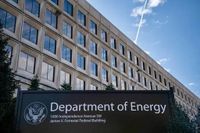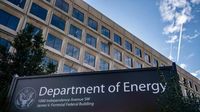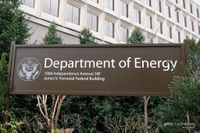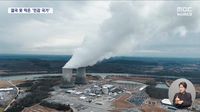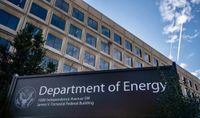The U.S. Department of Energy has officially designated South Korea as a "country of concern," effective April 15, 2025. This classification, which has raised eyebrows among South Korean officials, is believed to be influenced by a combination of recent events and ongoing tensions regarding nuclear technology and exports.
Last month, the South Korean government requested the U.S. to reconsider this designation, but the U.S. proceeded with its implementation, which includes additional security measures for researchers. As of now, South Korean researchers must submit their materials at least 45 days in advance to visit U.S. Department of Energy facilities, a significant increase in bureaucracy.
The roots of this decision can be traced back to a series of incidents that have strained U.S.-South Korea relations in the energy and technology sectors. Notably, in early 2024, an employee from the Idaho National Laboratory was dismissed for attempting to smuggle nuclear reactor software to South Korea. This incident raised alarms and contributed to the U.S. government's decision to classify South Korea as a country of concern.
In addition to this incident, the Yoon Suk-yeol administration's aggressive nuclear power export policy has also been cited as a factor. In June 2022, then-President Yoon stated, "We will go all-in to win nuclear power sales," emphasizing South Korea's push to expand its nuclear technology footprint globally.
However, this ambition has not come without complications. Westinghouse, a U.S. company that has been transferring nuclear technology to South Korea, filed a lawsuit against Korea Electric Power Corporation (KEPCO) and Korea Hydro & Nuclear Power (KHNP) for alleged intellectual property violations. The lawsuit has added to the tension, as it indicates deeper issues regarding technology transfer and intellectual property rights.
Following these developments, the South Korean Ministry of Trade, Industry, and Energy and the U.S. Department of Energy reached an agreement to strengthen controls over private technology, which likely influenced the decision to classify South Korea as a "country of concern." Shin Beom-cheol, a senior research fellow at the Sejong Institute, noted that the disputes over nuclear power competition and the Westinghouse lawsuit may have played a significant role in this designation.
Despite the ongoing discussions between the two governments, the South Korean administration has expressed uncertainty about when the designation might be lifted. Officials have repeatedly stated that they are in negotiations with the U.S. but have not provided a timeline for resolution. A government spokesperson mentioned, "It will take more time to resolve this issue," indicating a cautious approach moving forward.
As part of the new regulations, U.S. researchers visiting South Korean facilities will also be subjected to additional security protocols. This reciprocal arrangement raises questions about the future of scientific collaboration between the two countries, especially in the fields of nuclear energy and advanced technology.
Critics argue that treating South Korea, a key ally, similarly to countries like North Korea, Iran, and China, could have detrimental effects on the broader strategic partnership between the U.S. and South Korea. Many experts believe that this classification undermines the symbolism of their scientific and technological cooperation, which has been a cornerstone of their alliance.
The U.S. government has attempted to reassure South Korea that the designation will not hinder ongoing research and development cooperation. However, the reality of increased scrutiny and bureaucratic hurdles may complicate collaborative efforts in the future.
Furthermore, there are concerns that the U.S. might leverage the lifting of the "country of concern" designation as a bargaining chip in negotiations on other issues, such as trade agreements or tariffs. Some analysts fear that this could lead to further complications in the already delicate diplomatic relationship between the two nations.
In a recent meeting, South Korean Trade Minister Ahn Duk-geun and U.S. Energy Secretary Chris Wright discussed the need to address the concerns surrounding South Korea's designation. They agreed on the importance of resolving the issue as quickly as possible. However, the path to lifting the designation is fraught with challenges, as it requires a lengthy internal review process within the U.S. government.
As of now, the South Korean government remains committed to continuing discussions with the U.S. Department of Energy at the director-general level. Despite the difficulties, officials remain hopeful that a resolution can be reached, emphasizing the importance of maintaining strong ties in scientific and technological collaboration.
In summary, the U.S. Department of Energy's designation of South Korea as a "country of concern" has sparked significant debate and concern among officials and experts alike. The implications of this classification could be far-reaching, affecting not only bilateral relations but also the future of nuclear power cooperation and technological advancement between the two nations.
As the situation unfolds, both governments will need to navigate the complexities of their relationship carefully, ensuring that their longstanding alliance remains intact while addressing the underlying issues that led to this contentious designation.
